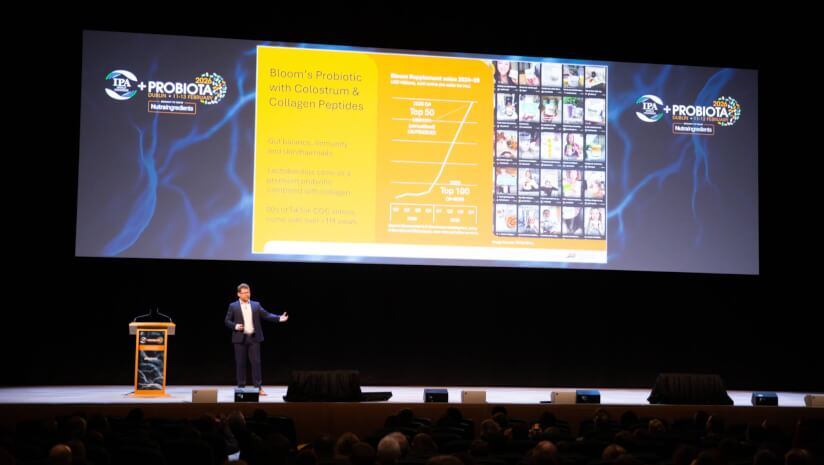
Microbiome


Expo West 2026 supplement preview: What’s happening on the show floor
Thousands of exhibitors across the natural products spectrum will descend on the Anaheim Convention Center for the 45th annual Expo West trade between March 3 and March 6.
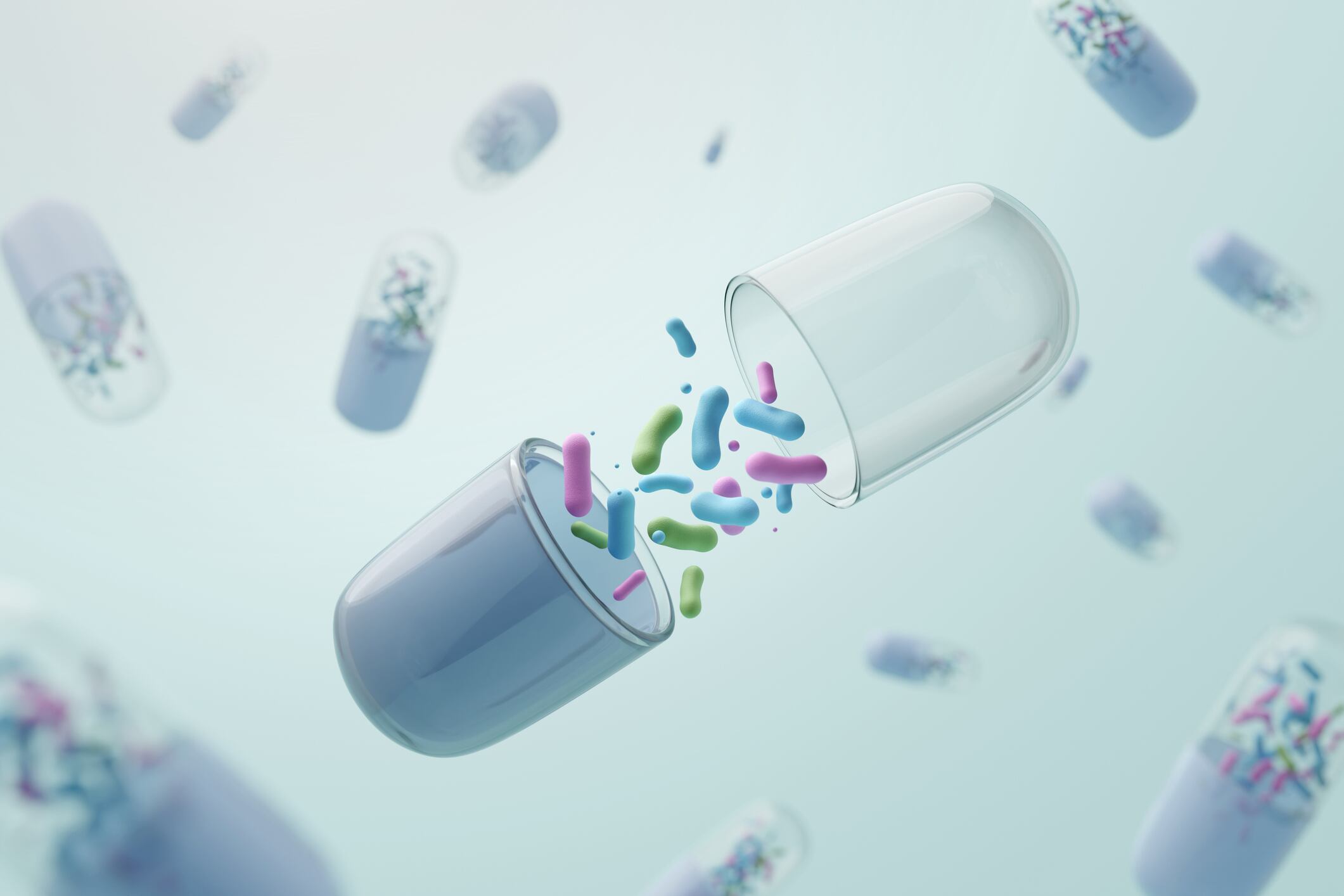
Daily synbiotic promotes post-antibiotic microbiome recovery, study suggests
New research suggests Seed Health’s multi-species synbiotic accelerates the restoration of microbial diversity and enhances gut barrier integrity following antibiotic exposure.
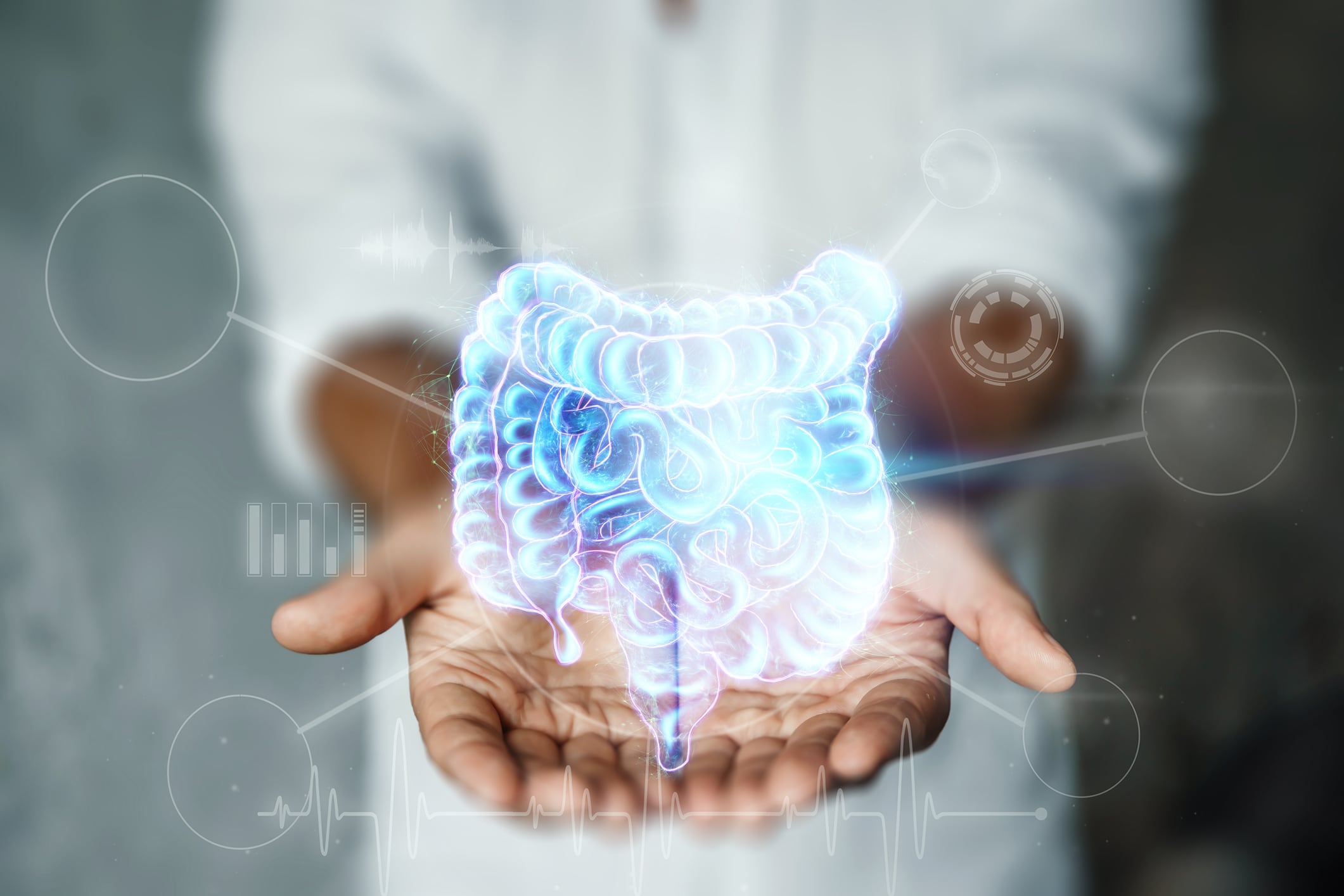
Australia’s industry body partners with IPA to advance probiotic research, education
Complementary Medicines Australia (CMA) and the International Probiotics Association (IPA) will collaborate to drive probiotic research, education, and quality standards.

HealthBiome races ahead of competitors with approval of postbiotic in Korea and US
South Korean firm HealthBiome Inc’s proprietary postbiotic ingredient has obtained regulatory validation both domestically and by the US FDA, which it says sets itself far ahead of competitors and enables premiumization in both B2B and B2C markets.
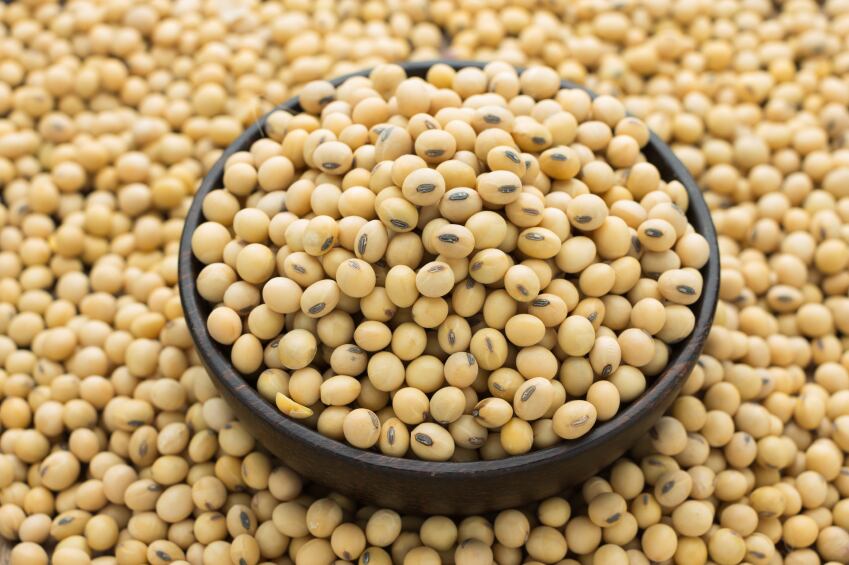
Gut-muscle axis: Soy protein intake improves muscle health in seniors
The supplementation of soy protein has been shown to improve muscle health and modulate the gut microbiome – findings that a group of Chinese researchers say would support the gut–muscle axis hypothesis.

NutraCast: Dr. Coetzee on personalized nutrition, psychoneutrogenomics and why anaerobic bacteria is the next big thing
Dr. Oscar Coetzee, VP of education and clinical support at Designs for Health, shared his unconventional career journey from psychology to nutritional science and how he still applies much of his background to his current work.

Targeted nutrition strategies may improve gut health and performance in female athletes
Omega-3s, magnesium and polyphenol-rich foods may aid digestion in female athletes, according to insights from a recent webinar hosted by Sport Ireland Institute.

Growth Asia Summit 2026: Calbee, NielsenIQ, PepsiCo to present this July
Calbee, NielsenIQ and PepsiCo are some of the biggest names giving keynote presentations at this year’s Growth Asia Summit.

Postbiotics, regulation and strain optimization to headline Probiota day two
Day two at the IPA World Congress + Probiota Dublin 2026 will see experts discuss regulatory updates, postbiotic science and strain-level innovation.
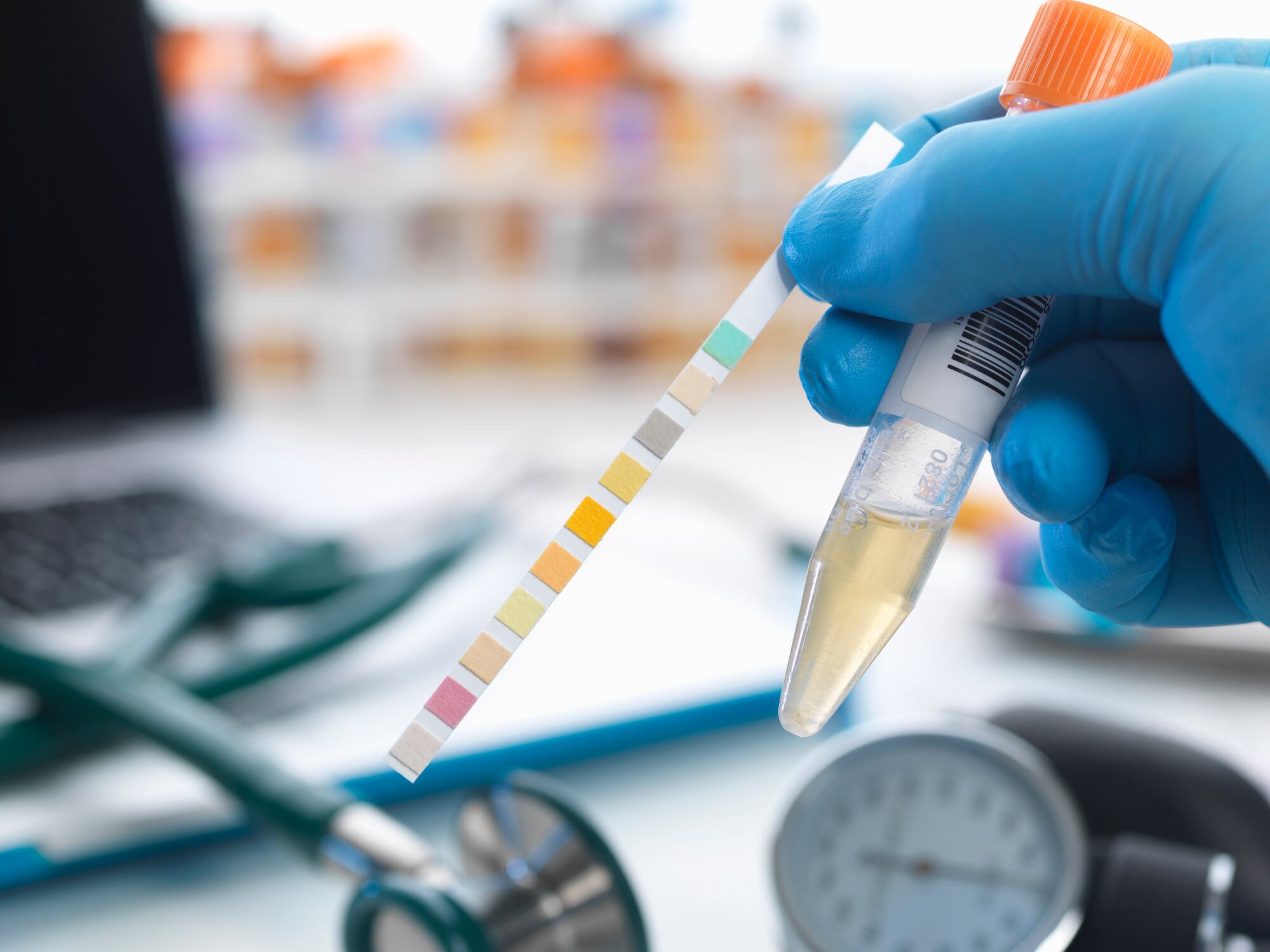
Kirin deepens immune health R&D with subsidiaries FANCL, Blackmores
Kirin is advancing its immune health R&D with subsidiaries FANCL and Blackmores, piloting a urine-immune test and launching a new immune health supplement.
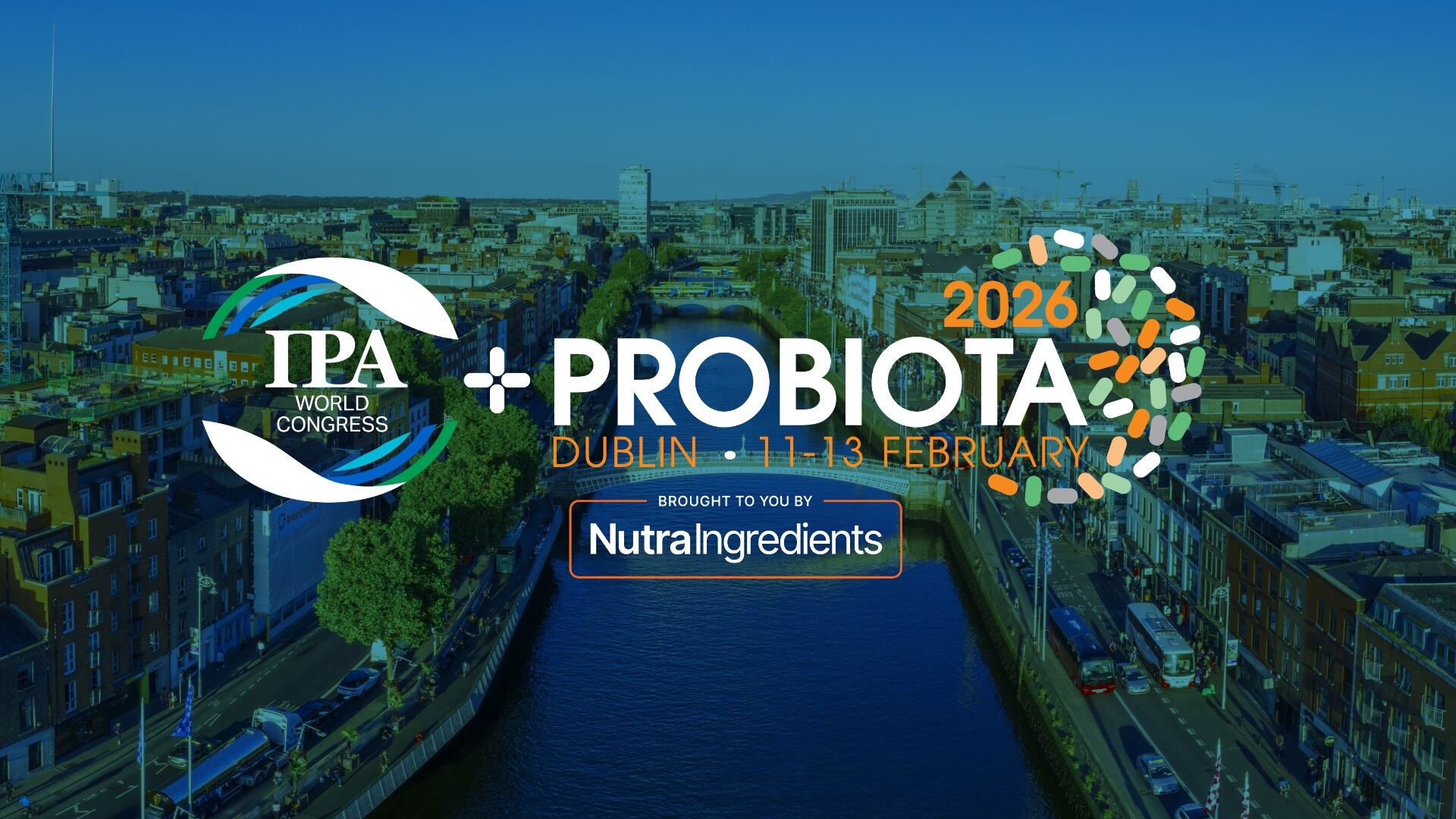
IPA World Congress + Probiota 2026: Market dynamics, pioneers, next gen biotics and ‘from bums to gums’ headline Day 1
The IPA World Congress + Probiota is less than a month away with must-see speakers on Day 1 including Dr. John Hale, Muriel Gonzalez, Ewa Hudson, Dr. Koen Venema, Meghan Taylor and more!

Probiota Pioneers 2026: Calling all Probiotics, Prebiotics and Microbiome start-ups
NutraIngredients is on the hunt for entrepreneurial consumer-facing, science- or technology-based start-ups to join our Probiota Americas Pioneers session and present their company in Vancouver.
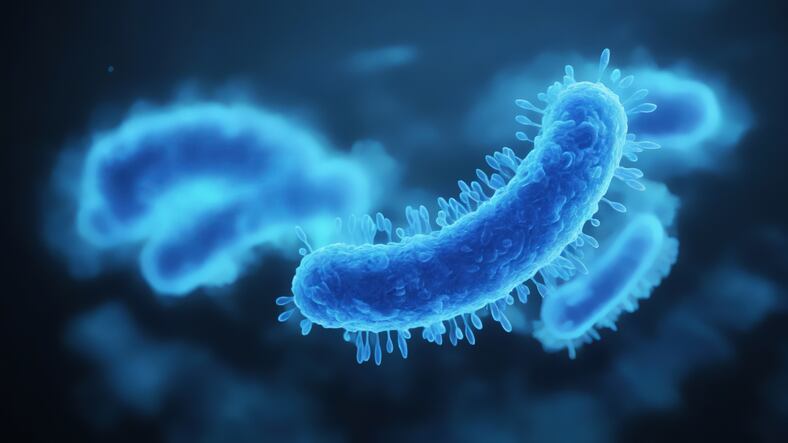
Tech start-up seeks to address ‘data blind spot’ in small intestine sampling
Probiota Pioneer Microvitality seeks to address data gaps with direct sampling from the small intestine using new ingestible capsule technology.
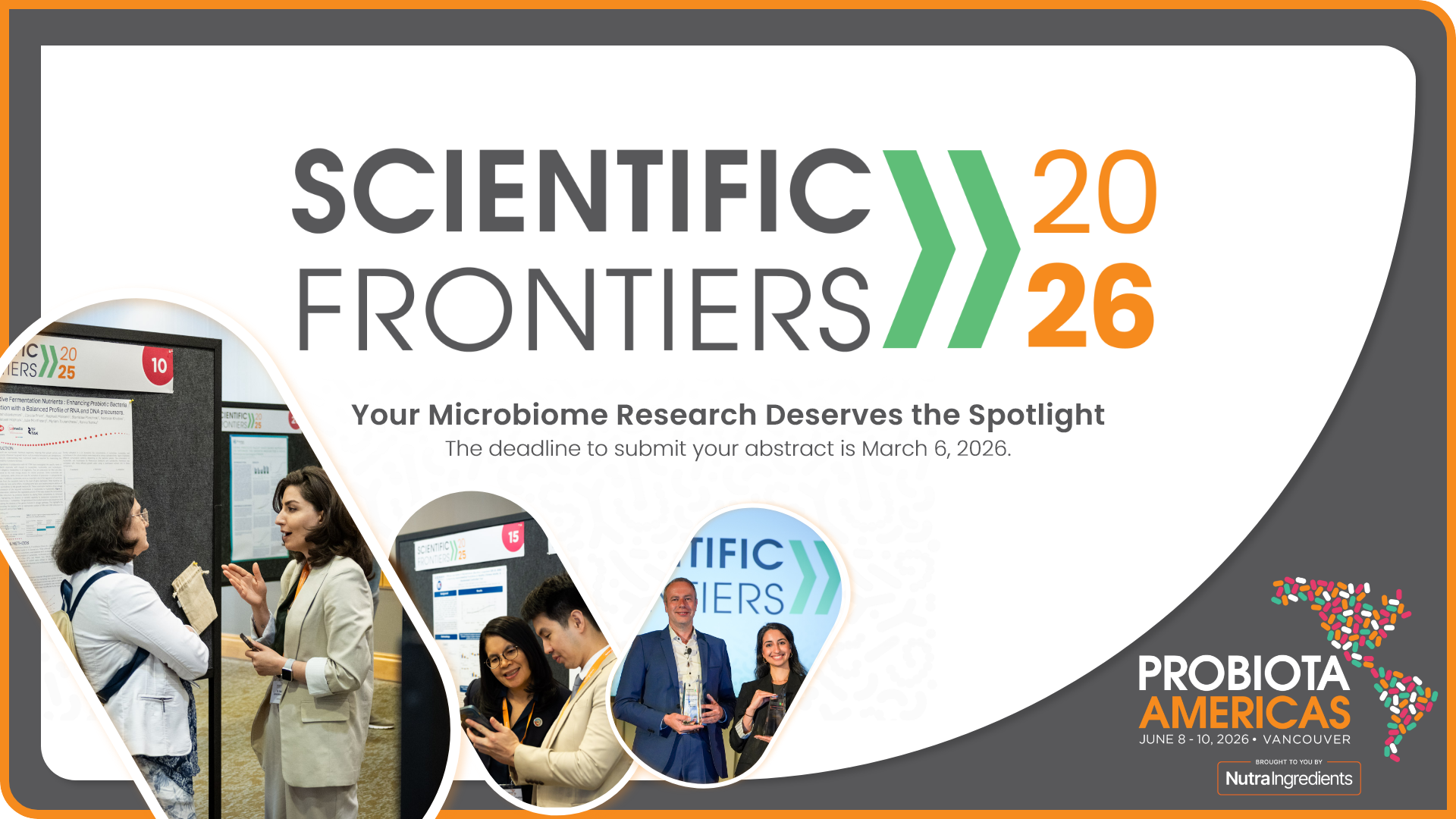
Deadline for entry is March 6, 2026!
Got groundbreaking microbiome-related research to shout about? We want to hear from you!
Are you researching the latest state-of-the-art developments related to prebiotic, probiotic, postbiotic and microbiome science relevant to human health, well-being, consumers and industry? If so, we would like to hear from you!

Binding proteins: The next big thing in gut health?
Danish start-up Bactolife has secured over €30 million in its Series B investment round, enabling the company to commercialize its novel gut health solution: binding proteins.

NutraCast: Is fiber the new protein?
A new trend report examines why consumers are tapping into functional foods over supplements for fiber, how GLP-1 users are driving prebiotic adoption and why diverse fiber formulations outperform single-prebiotic strategies.
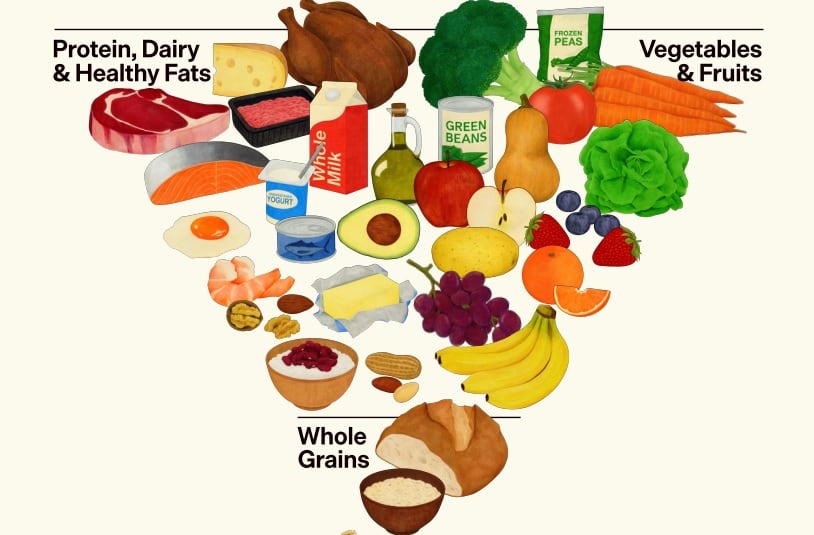
Protein, gut health and opportunity: New dietary guidelines promise to Make America Healthy Again
During a press conference Wednesday, Health Secretary Robert F. Kennedy Jr. announced new dietary guidelines that flip the traditional food pyramid on its head.
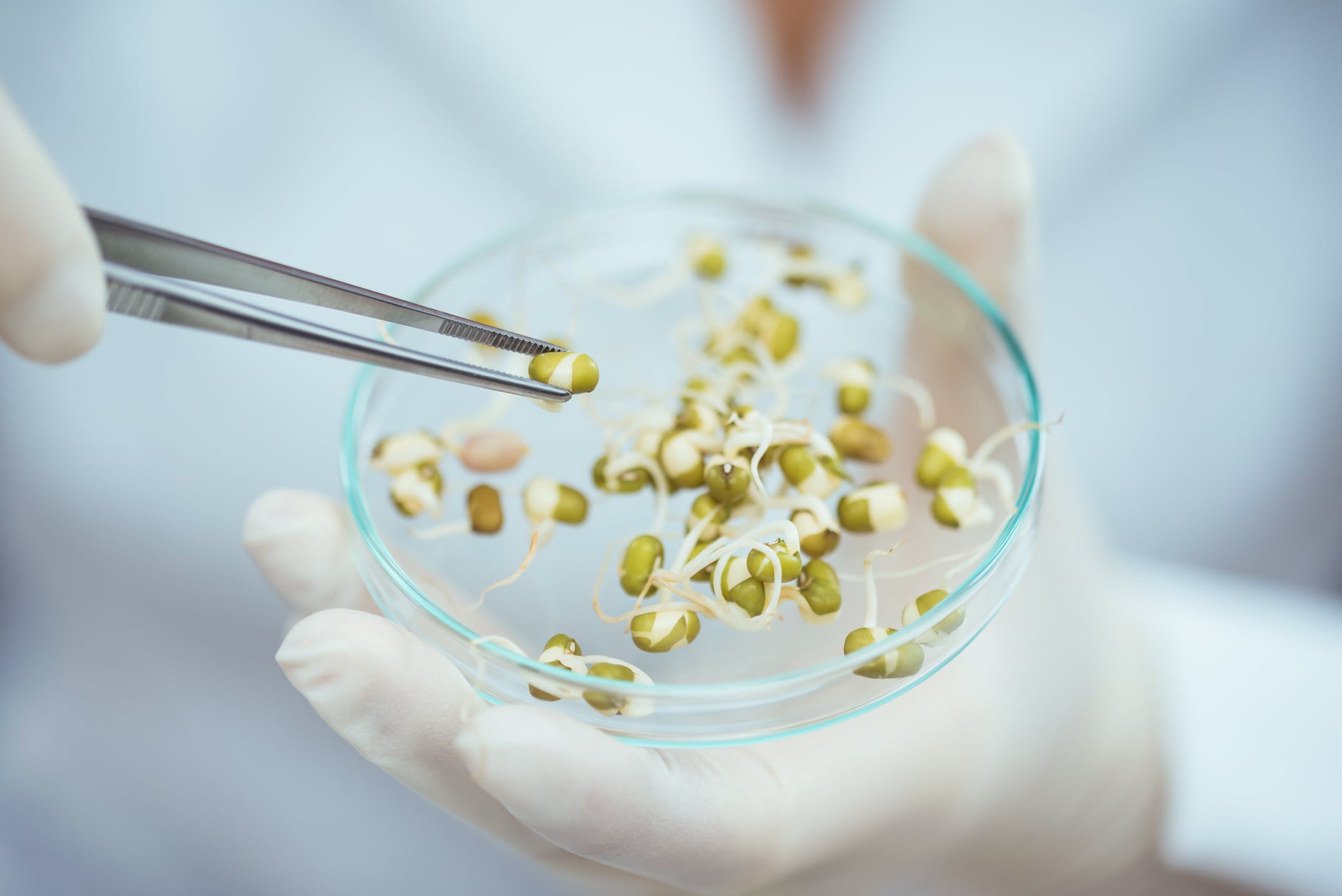
Could GMO plants unlock full-spectrum human milk oligosaccharide production?
Totality Biosciences has developed a synthetic biology platform that leverages genetically engineered plants to produce the full spectrum of human milk oligosaccharides (HMOs) and will be presenting the business at the upcoming IPA World Congress +...

Probiotics shown to alleviate allergic rhinitis in kids – Eight-week study
Supplementing with probiotics can help alleviate allergic rhinitis in kids, and the benefits are linked to gut microbiome modulation and downregulation of inflammatory biomarkers, say findings of an eight-week clinical trial conducted in China.
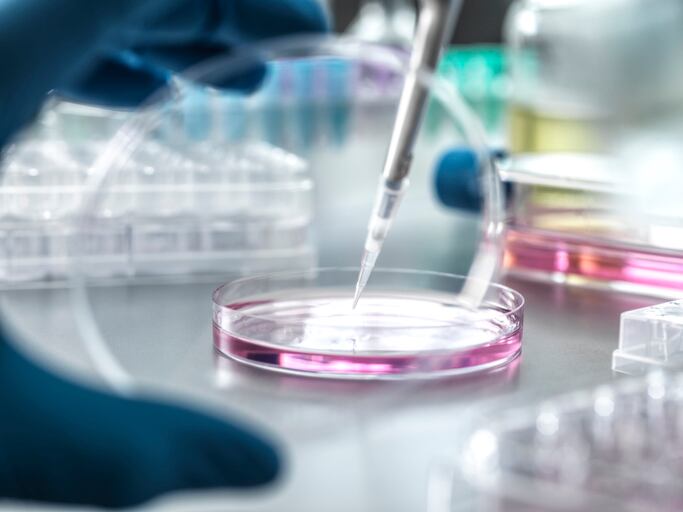
Science shorts: Fucoidan, multivitamins, Tongkat Ali in the spotlight
In this round-up, we bring you the latest research findings on health and nutrition, including new findings on fucoidan for grip strength improvement, the need for targeted supplementation of multivitamins, and Tongkat Ali’s benefits in alleviating...

Mark your calendar: IPC 2026 heading to Kraków
The 19th annual International Scientific Conference on Probiotics, Prebiotics, Gut Microbiota and Health (IPC) is heading to Kraków, Poland from June 22 to 24, 2026.


‘There was never a dull moment’: 8 reasons to attend the IPA World Congress + Probiota 2026
The IPA World Congress + Probiota 2026 is just two months away! The leading event for the probiotics, prebiotics and microbiome community is a must-attend event, and let us tell you why…

Guest article
Mission Possible: IPA’s year of reckoning for the future of biotics
Each year, my reflections seem to circle back to film. Maybe it’s because movies often mirror our own journeys, tales of challenge, resilience and purpose.

Brand new: Mengniu, TA Vital, Swisse, Noromega in the spotlight
See new developments from health and nutrition brands across Asia-Pacific, including Mengniu securing a ‘blue-hat’ status for its upcoming probiotic drink, Vietnamese firm TA Vital harnessing brown algae extract for weight management, and omega-3 brand...

The hallmarks of aging: Distilling complexity into a long healthy life?
The supplement industry has shifted from studying isolated pathways to exploring a complex web of interdependent hallmarks of aging to connect changes at the cellular level to quantifiable healthspan outcomes.
Mining the microbiome: Can microbial interventions influence the pace of aging?
The rising demand for healthy aging supplements has taken the industry by storm, with the cellular health category leading the charge. But are microbial interventions a forgotten aspect of this conversation?

Spermidine-producing CRISPR probiotic may boost memory via gut-brain axis
A probiotic yeast engineered using CRISPR to overproduce and secrete spermidine may reduce age-related declines in short-term memory, says a new study using fruit flies.

Mengniu gets ‘blue-hat’ for new YoyiC probiotic drink
China dairy giant Mengniu Dairy has obtained “blue-hat” status for a new probiotic drink slated for launch next year.
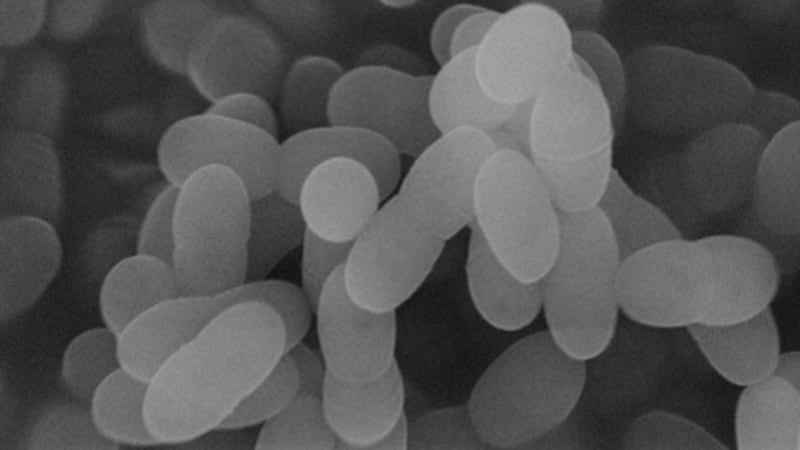
Pro, postbiotic intake shown to reduce cold-like symptoms in meta-analysis
A first-of-its-kind meta-analysis of eight clinical studies showed that supplementing with both live and heat-killed Lactococcus lactis strain Plasma (LC-Plasma) could reduce cold-like symptoms by activating a particular group of immune cells known as...

Australia’s top five most popular dietary supplement categories revealed
Women’s health was the most popular dietary supplement category in Australia this year.

Coming soon: Current landscape and future directions for prebiotics
Hear from experts from Wageningen University and myota in a free webinar on Dec. 9 that explores the challenges and opportunities of a growing prebiotic category.

Anti-aging methods for the gut microbiome: Focus on optimization, not rejuvenation
“The gut requires a different strategy from much of the aging field,” said researcher Dr. Sean Gibbons at the recent Nutra Healthspan Summit.

Haleon taps into tripartite partnership to drive microbiome R&D in S’pore
Haleon is working with a Singapore-based research institute and start-up to drive microbiome research and innovation.

Science shorts: Red palm olein, probiotics, glycine in the spotlight
In this round-up, we bring you the latest research findings on health and nutrition, including new findings on red palm olein, probiotics, glycine and more.
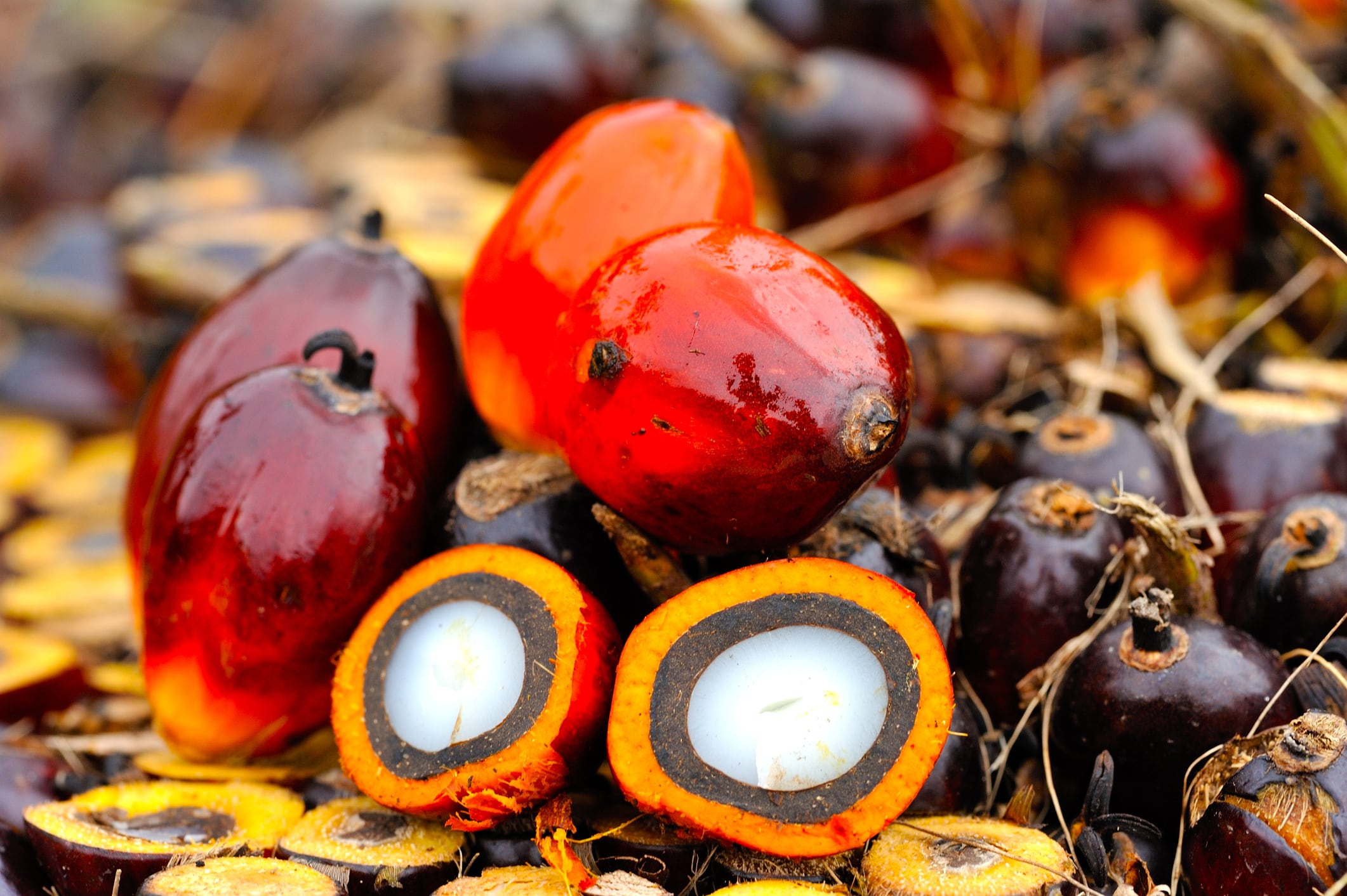
Red palm olein-fortified biscuits linked to beneficial gut microbes in vitamin A-deficient children
Consuming biscuits fortified with red palm olein (RPO) for six months can increase beneficial gut microbes in rural children with vitamin A deficiency, according to a randomised controlled trial in Malaysia.
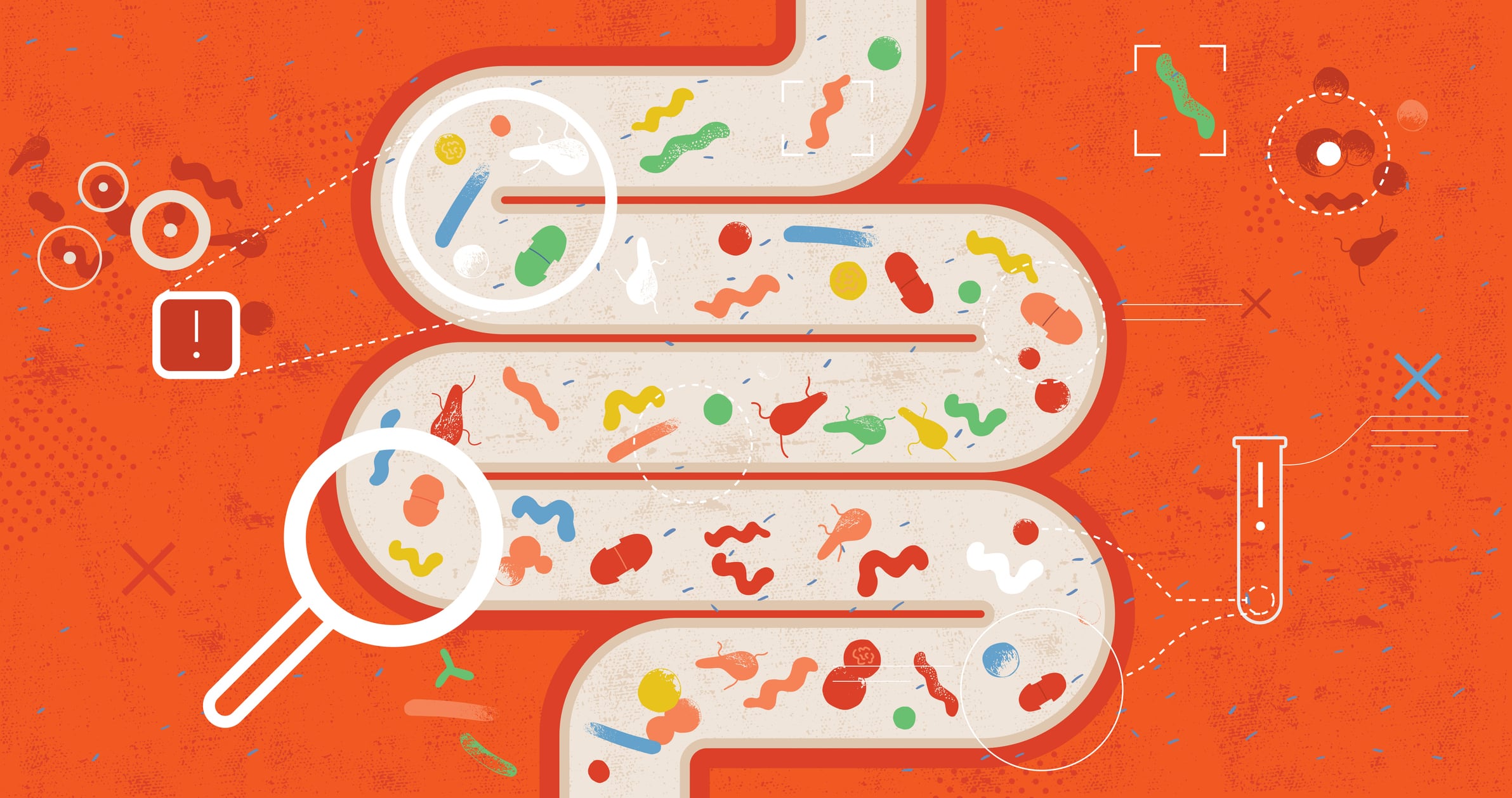

Biohm opens Atlanta R&D center to accelerate fungal microbiome ingredients
Biohm Technologies has added a research laboratory in Atlanta to accelerate its pipeline of fungal and bacterial probiotic and postbiotic ingredients.

Big name brands on board: Check out the first wave of speakers for our Growth Asia Summit 2026
Today we can announce the first wave of speakers for our Growth Asia Summit 2026, with major brands from Japan, India, New Zealand, Malaysia, Hong Kong and France on the agenda.
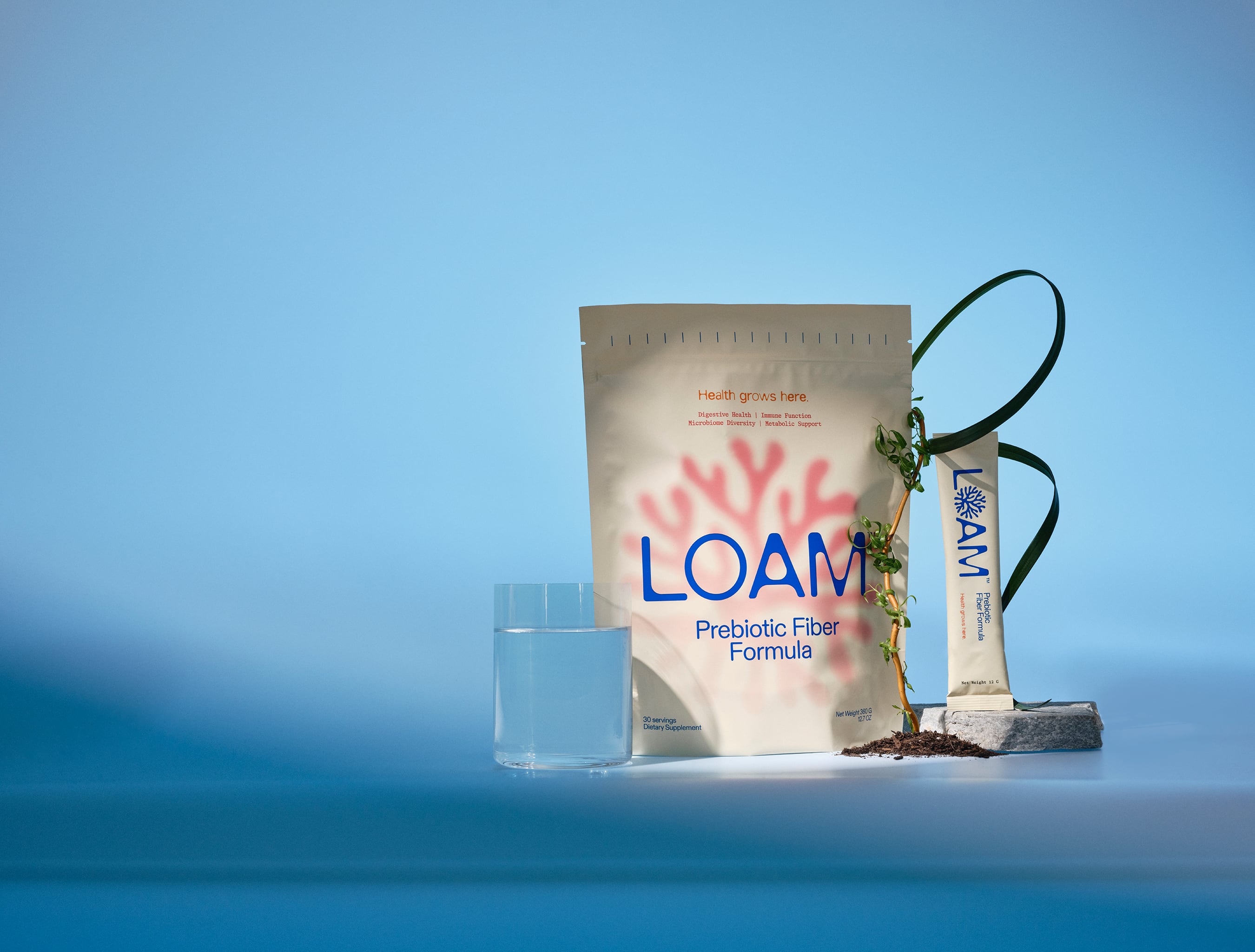
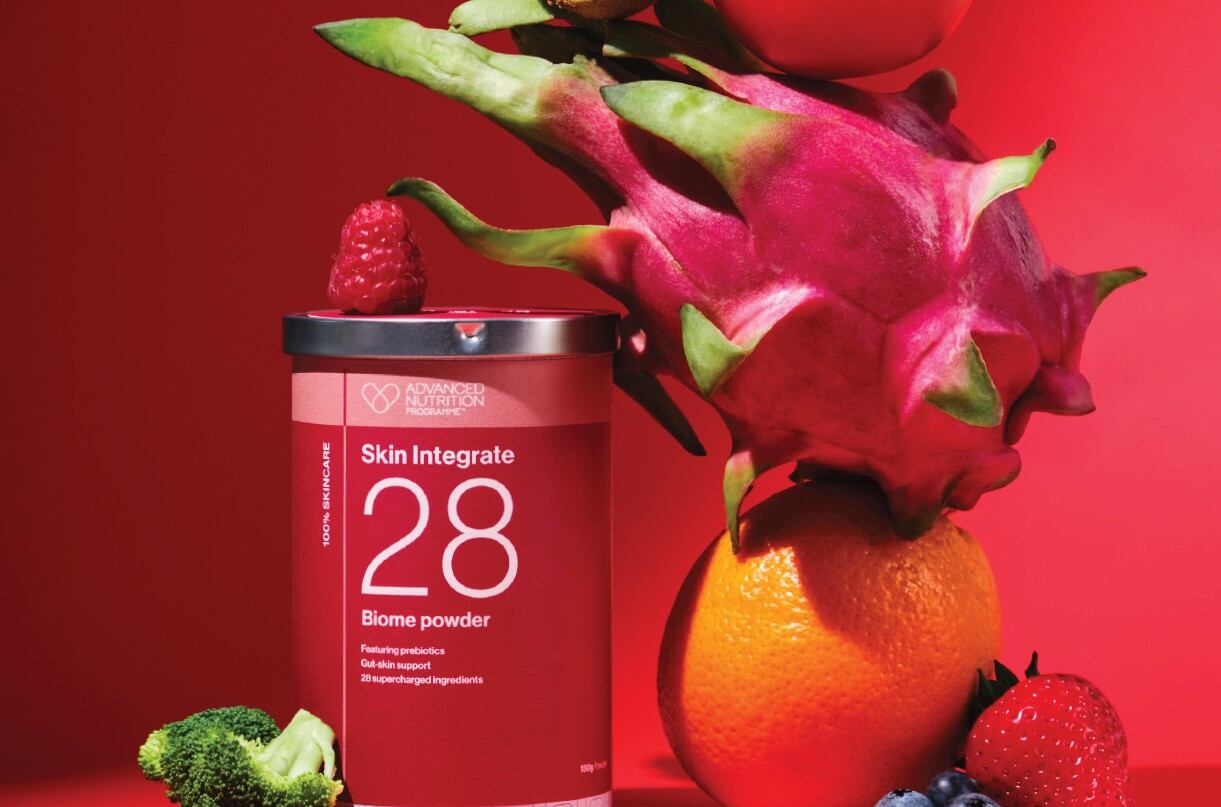
Gut–skin axis: inside Advanced Nutrition’s 28 Biome innovation
We spoke to Advanced Nutrition Programme’s Head of Nutrition about the research and development behind its newest launch and what the testing has taught her about the gut–skin axis.
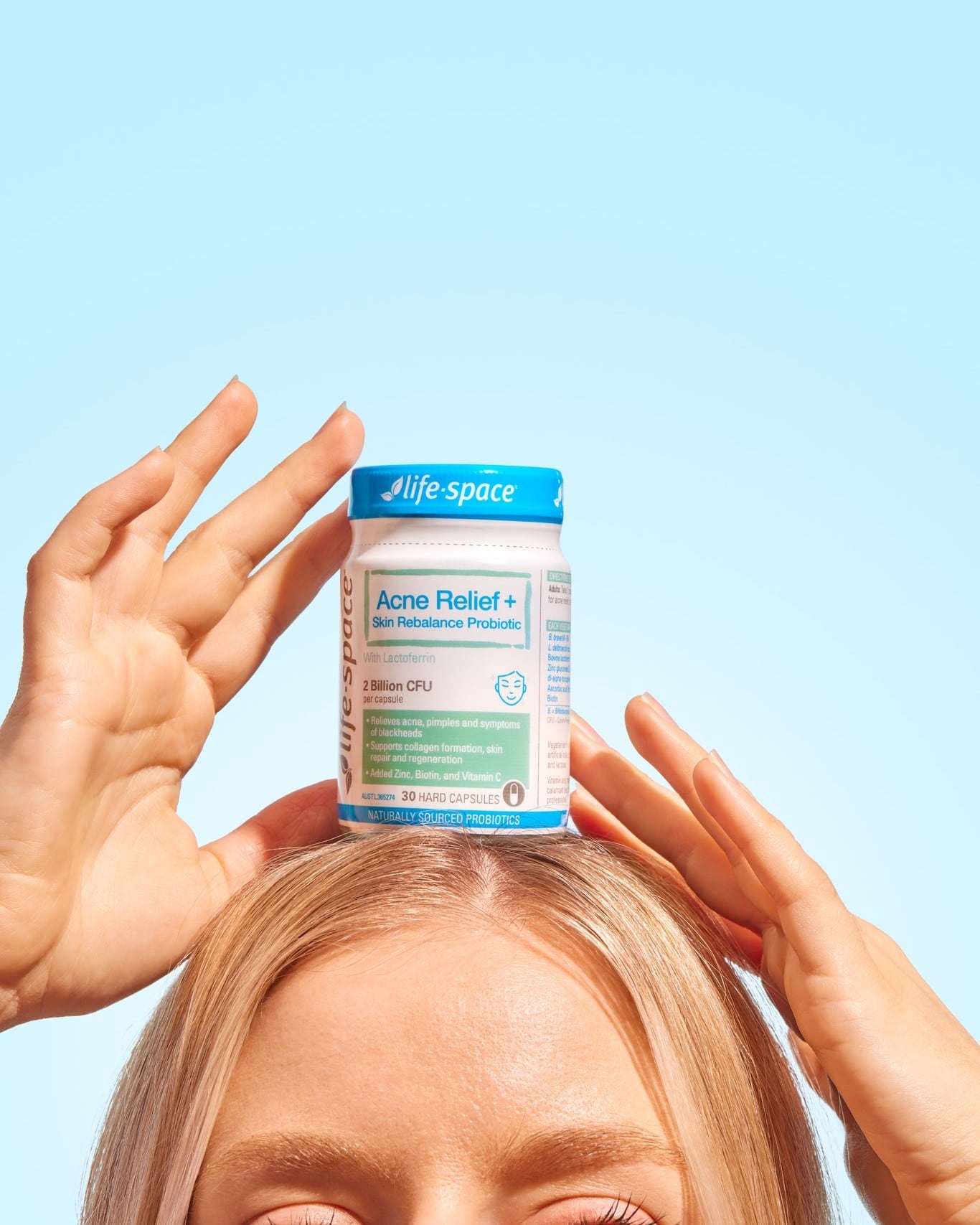
WATCH: Life-Space targets all gut-axes post award win
Australia-based microbiome specialist Life-Space is planning to increase its offerings for gut-skin and gut-brain axes, as well as the gut-muscle and gut-bone axes as it dabbles into the healthy longevity space.

Underweight women have lower gut microbiota diversity - Japan study
A study from Japan found that underweight women - those with a body mass index (BMI) of less than 17.5 - have a significantly lower gut microbiota diversity and a higher amount of gut bacteria species linked to inflammation.

Haleon seeks partnerships to advance self-care
Haleon, the company behind household brands such as Centrum, Caltrate and Sensodyne, is seeking industry and research partnerships to advance self-care.
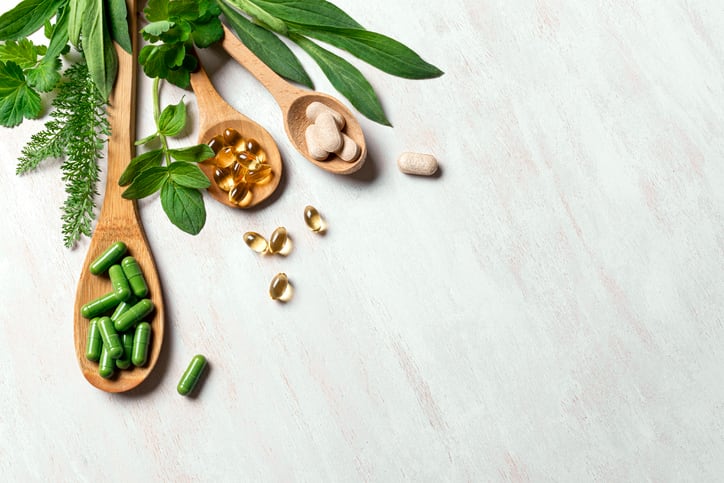
Supplier round-up: Spotlight on Probi, Rousselot, Aker BioMarine and more
This round-up looks at the supplier firms driving new developments across Asia-Pacific’s nutraceuticals market, including Probi’s triple win at the NutraIngredients Awards, Rousselot expanding footprint of its patented cartilage matrix ingredient in...

NutraCast: Is the mycobiome the key to healthy aging?
While bacteria often dominates microbiome discussions, the mycobiome—the fungal community within our bodies—plays an equally crucial role in health, particularly as we age.
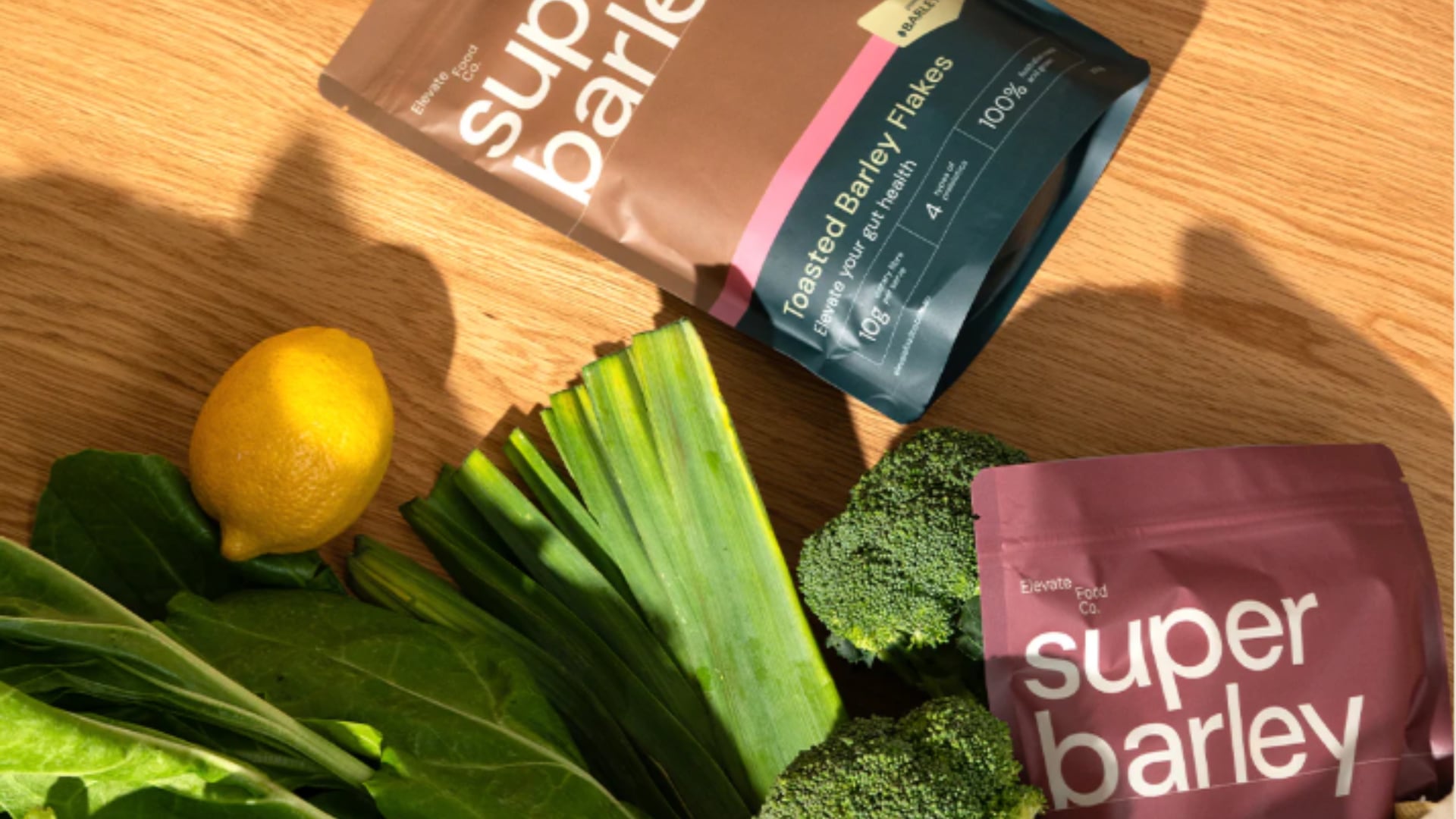
How an Aussie supergrain can boost gut health and elderly nutrition
Award-winning gut-friendly supergrain BARLEYMAX eyes growth in elderly nutrition, infant formula, and high-fibre bakery products
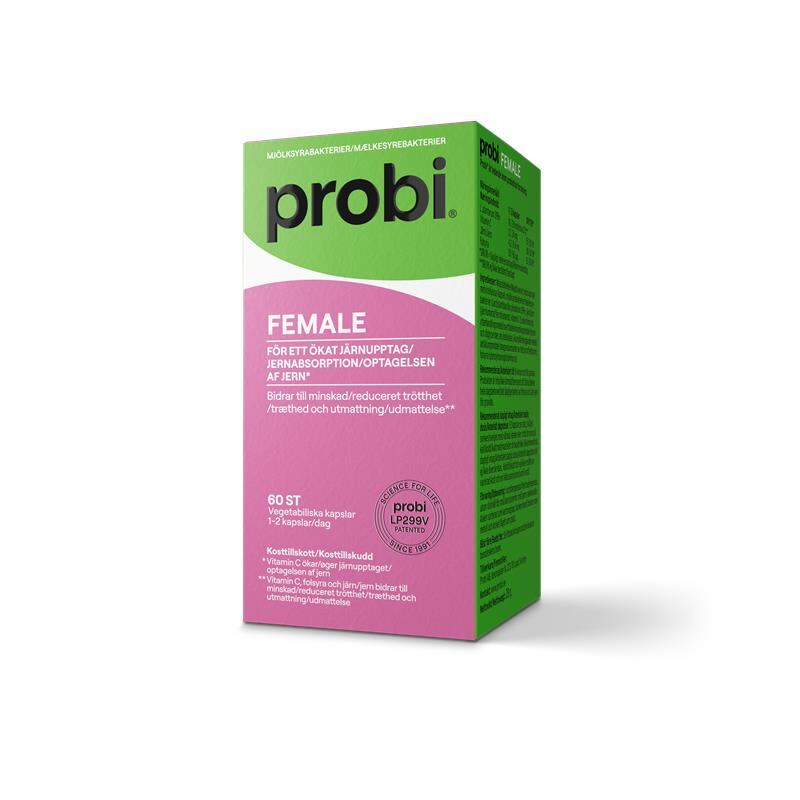
NutraIngredients-Asia Awards 2025
Probi highlights innovation opportunities for iron absorption-enhancing probiotic following treble
Swedish firm Probi has bagged a treble of NutraIngredients Awards for its microbiome-based solution targeting iron deficiency, a health issue particularly prevalent among Asian women.

Breastmilk prebiotic may improve metabolism and boost cognition for older adults: RCT
Dietary supplementation with the human milk oligosaccharide (HMO) 2′-fucosyllactose boosted the growth of Bifidobacterium in the guts of older adults and improved a range of metabolic measures, says a new study from Stanford University and Abbott Nutrition.
